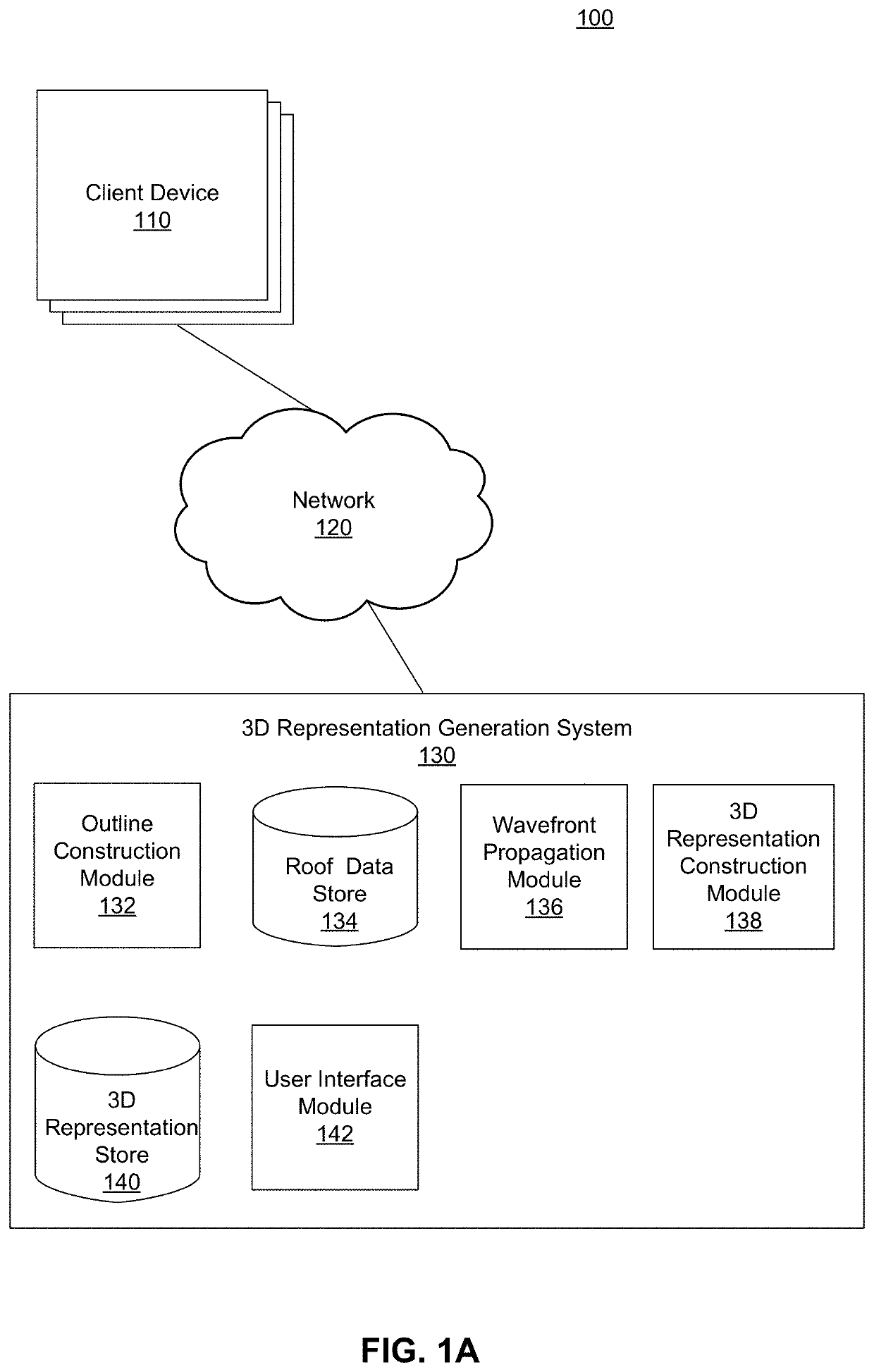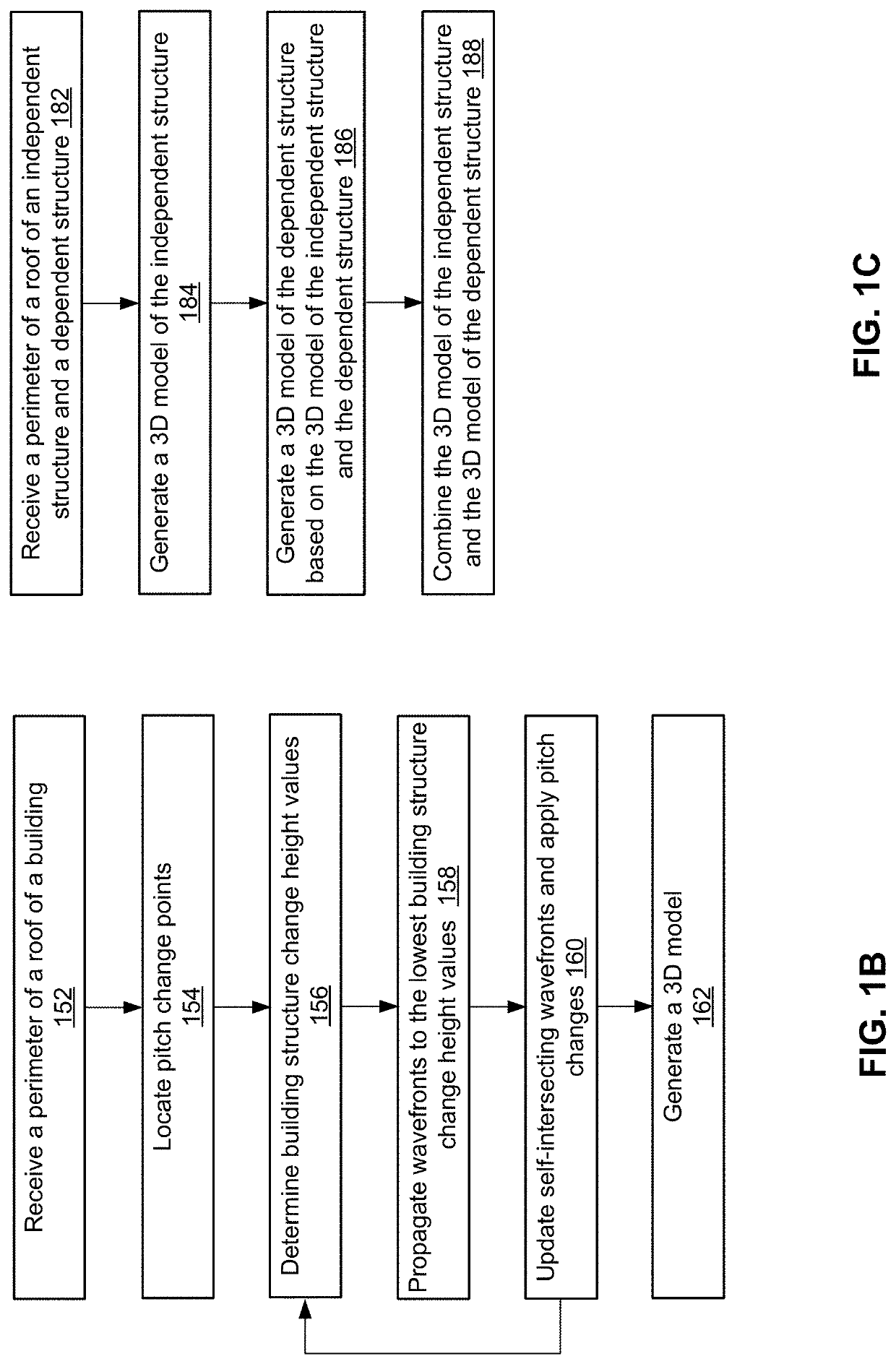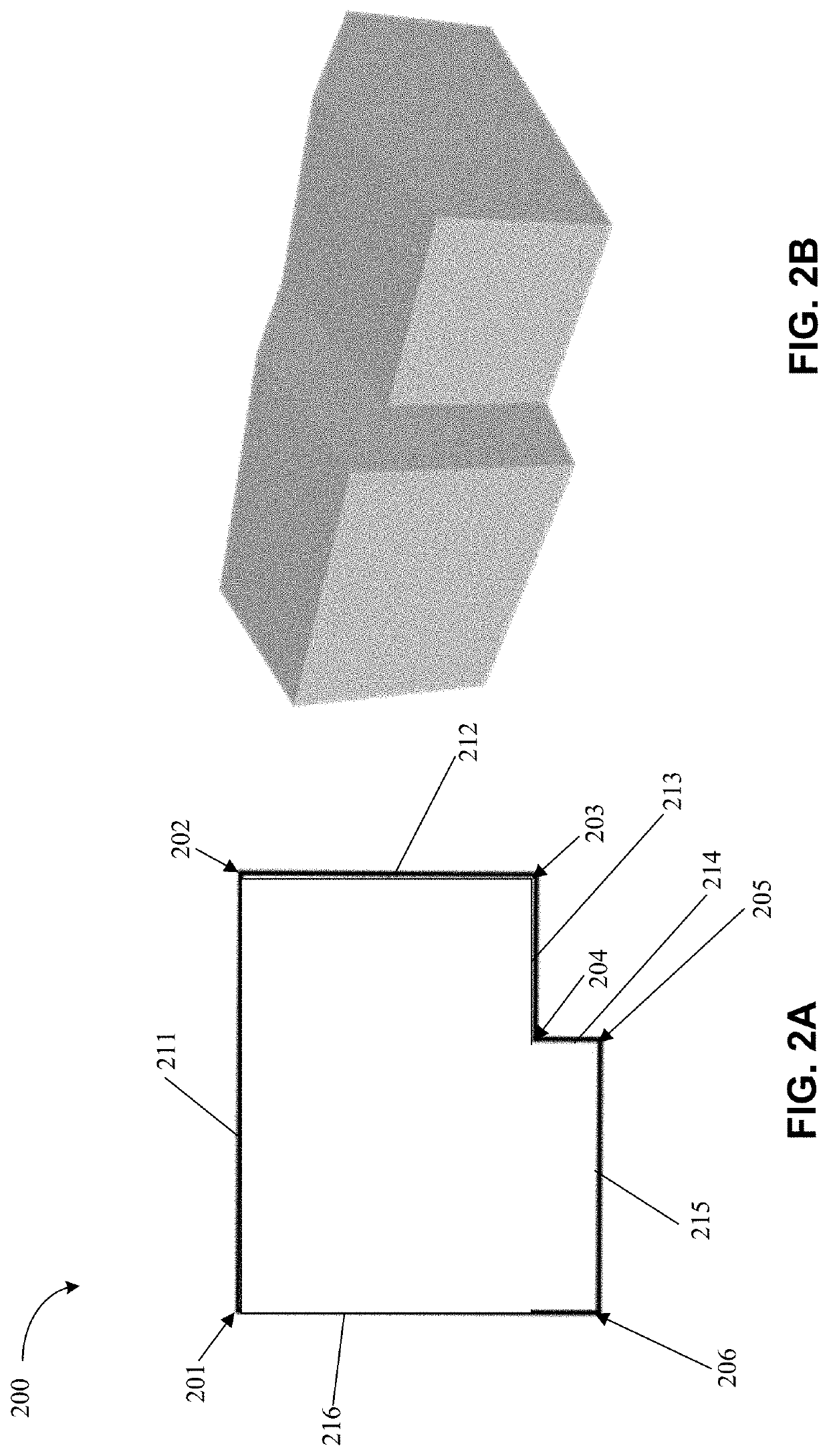3D building modeling systems
a building modeling and building technology, applied in the field of three-dimensional building representations, can solve the problems of inability to model complex roof structures, high degree of skill, and limitations of conventional approaches for building complex roofs, and achieve the effect of less training and creating complex roof structures
- Summary
- Abstract
- Description
- Claims
- Application Information
AI Technical Summary
Benefits of technology
Problems solved by technology
Method used
Image
Examples
Embodiment Construction
[0019]FIG. 1A illustrates a computing environment 100 for generating three-dimensional (3D) building representations, according to one embodiment. The environment includes entities such as client device 110, a 3D representation generation system 130, and a network 120. The network 120 connects the client devices 110 and the 3D representation generation system 130. In the illustrated example, only one 3D representation generation system is shown, but there may be multiple instances of the 3D representation generation system.
[0020]Client devices 110 include computing devices such as mobile devices (e.g., smartphones or tablets with operating systems such as Android or Apple iOS), laptop computers, desktop computers, or any other type of network-enabled device that enable users to interact with the 3D representation generation system 130. For example, the client devices 110 enable users to receive 3D representation generation services from the 3D representation generation system 130. A...
PUM
 Login to View More
Login to View More Abstract
Description
Claims
Application Information
 Login to View More
Login to View More - R&D
- Intellectual Property
- Life Sciences
- Materials
- Tech Scout
- Unparalleled Data Quality
- Higher Quality Content
- 60% Fewer Hallucinations
Browse by: Latest US Patents, China's latest patents, Technical Efficacy Thesaurus, Application Domain, Technology Topic, Popular Technical Reports.
© 2025 PatSnap. All rights reserved.Legal|Privacy policy|Modern Slavery Act Transparency Statement|Sitemap|About US| Contact US: help@patsnap.com



